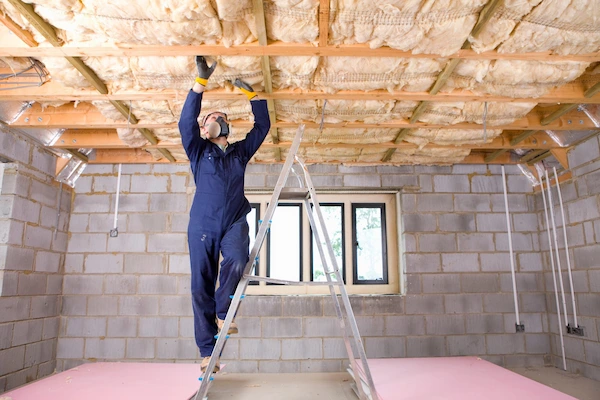Foundation insulation is an essential aspect of a well-insulated home. Keeping the inside temperature at a suitable level is essential. It also reduces energy consumption and costs and protects your home from damage.
In this guide, we will cover the basics of foundation insulation. Read below as we provide you with all the information you need as a homeowner.
What is Foundation Insulation?
Foundation insulation refers to the materials and techniques used to insulate the foundation of a building. This includes the basement walls, crawl space walls, and concrete slabs.
The purpose of foundation insulation is to prevent heat loss or gain through the foundation. This can account for up to 20% of a home’s total energy loss. It also helps to keep moisture out of the foundation, which can cause damage over time.
Types of Foundation Insulation
There are several types of foundation insulation, each with its unique benefits and applications. The most common types include:
Rigid Foam Board
This is a lightweight and quality insulation. This is commonly used in basement walls and concrete slabs. It provides excellent thermal and moisture resistance, making it a popular choice for foundation insulation.
Spray Foam Insulation
Spray foam insulation is a liquid foam that expands and hardens when sprayed onto surfaces. It is often used to insulate crawl space walls and can be applied on top of existing insulation for added protection.
Fiberglass Batt Insulation
Fiberglass batt insulation is a cost-effective option for insulating basement walls. It comes in pre-cut panels that can be easily installed between wall studs.
Insulated Concrete Forms (ICFs)
ICFs are a type of insulated formwork used to build concrete walls. They provide structural support and insulation, making them an efficient choice for foundation walls.
Installation Process
Proper installation is crucial for the effectiveness of foundation insulation. Hiring the roofing contractors with experience with insulation installation is recommended.
The process will involve measuring and cutting the interior wall insulation material. This will fit the foundation walls and seal any gaps or cracks. This ensures proper ventilation for moisture control.
Regularly looking for any indications of wear or damage is crucial. Repair or replace any damaged insulation promptly. This helps to maintain energy efficiency and protect your home.
Factors to Consider When Choosing Foundation Insulation
When selecting the correct type of foundation insulation for your home, there are a few factors to consider:
Climate
The climate in which you live will determine the level of insulation needed to maintain comfortable indoor temperatures. A higher R-value (a measure of thermal resistance) is recommended for colder climates.
Moisture Control
In areas with high moisture levels, choosing an insulation material resistant to water is essential. This will help prevent mold and mildew growth and protect your foundation from potential damage.
Cost
The insulation cost can vary greatly depending on the material type and your foundation’s size. Considering the upfront cost and long-term savings when choosing foundation insulation is essential.
Installing Foundation Insulation
Foundation insulation is a crucial aspect of a well-insulated home. Understanding the different types lets you decide on the best foundation insulation for your home.
Remember to maintain and inspect your insulation regularly. This will ensure its continued effectiveness in keeping your home comfortable and energy-efficient. So, every homeowner needs to understand foundation insulation basics well.
Want to hear more tips? Visit our page to see more informative and helpful blog posts.
Read Also: The Key Steps On How To Fix A Leaking Roof From The Inside







